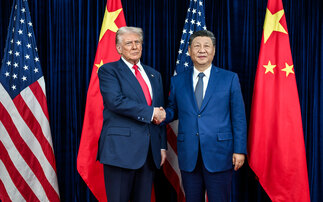China's economic slowdown is structural and set to accelerate over the next decade, writes Keith Balmer, product specialist at BMO Global Asset Management.
Its former export-driven growth model lies firmly in the past and the infamous middle-income trap is looming.
Population growth has peaked because of the one-child policy; the working-age population is already shrinking, expected to be down 50% by the second half of this century, while the share of the population aged 70-plus is expected to triple.
How will Trump, tech and trade impact investors?
To tackle this slowdown, the ruling Chinese Communist Party (CCP) is engaged in a new programme to jumpstart productivity growth: Made in China 2025. Can this ambitious strategy succeed within the confines of a repressive autocracy?
State of play
Government intervention is nothing new in China, but creating endogenous growth through innovation certainly is.
Under Made in China 2025, the CCP is aiming to develop the country from a low-skilled, low-cost manufacturer into a provider of high-end goods and services, specifically focusing on artificial intelligence and machine learning.
It is essentially a giant exercise in centrally planned industrial modernisation, targeting key sectors from transport to telecommunications.
The programme is closely linked to the government's strategic vision for China's role as a global super power. The ongoing tensions between China and the US extend beyond trade into the cybersphere, and the Chinese government perceives one aspect of victory as achieving dominance in new technology.
Conventional wisdom has it that China will indeed be able to supersede Western technology and create sustainable domestic demand.
In terms of artificial intelligence, China does stand at a major advantage to other nations because of its access to a huge amount of data, owing to its large population and absence of privacy laws.
However, this ambitious industrial policy faces a number of hurdles, which we believe will ultimately render it unsuccessful.
The most pressing problem is that China's autocratic nature limits its scope for success. The CCP plans to throw money at Made in China 2025 by investing heavily across the different sectors.












